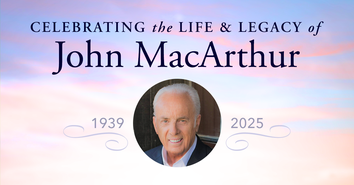Taking on MTV
Patrick McGuire, a two-time Emmy award winning television producer, is taking on MTV.
Updated Apr 01, 2002

Two-time Emmy award-winning television producer Patrick McGuire is taking on MTV.
But unlike many people of faith, McGuire does not have contempt for the music channel. He respects the accomplishment of MTV CEO Tom Freston, who took a small startup and turned it into a cultural behemoth that has invaded more than 140 nations.
Rather than boycotting MTV or leading protests outside of the music video channel's studios in New York City, McGuire has developed The Altarnet Experiment, an alternative music video show that will begin airing weekly on PAX-TV April 6 at 1 a.m. The network's reach allows Altarnet to reach 30 million more homes than MTV.
McGuire and his associates began producing the first of 580 episodes of their music video show in the fall of 1999, airing it on the Sky Angel Satellite System, The DISH Network and in the show's home territory of Colorado Springs, Colo.
Unlike the earlier Z! Music Television or the weekend fare offered on the nation's largest religious channel, TBN, Altarnet is not positioning itself as a religious or Christian-music-video program, but it will reflect the worldview of its producer.
"Altarnet is an alternative to the destructive negative music that seems to get so much airplay these days," states McGuire. "There is a very hip alternative for the emerging youth culture that is very attractive to the youth and that parents can be supportive of."
Although McGuire supervises the production, his son Andrew and his 20-something pals, who already have several years of production experience under their belts, do most of the work.
"We firmly believe that teens know what's cool for teens," said the senior McGuire. "It's produced and hosted by 20-somethings and programmed completely by viewer requests."
What teens apparently want is music that transcends the old-world boundaries of "Christian" or "secular," a paradigm that McGuire and company completely reject. Instead, the programming will feature artists like P.O.D., Creed, Lifehouse, Jars of Clay, Project 86, Lenny Kravitz and dozens of other artists that will present a hip, positive, direct challenge to MTV's supremacy on the airways.
May the best music win.
In many ways, McGuire hopes to achieve in the music video world what the Fox News Channel achieved in news: A clear alternative to the primary network, but one that avoids easy labels from its opponents, allowing its core audience to expand. Just as Fox News has, for the most part, dodged the "conservative" label, McGuire's success will most likely hinge on his ability to dodge the tag "Christian entertainment."
In PAX-TV, McGuire has selected the perfect partner, a channel that already has accomplished the same feat. Although founder Bud Paxson is a devout believer, the mogul, noted for his exclamation, "Christian television stinks!" has successfully dodged the "Christian television" tag while nonetheless producing programming that is in line with his faith.
McGuire is determined to produce a show that rocks hard but avoids drug abuse, illicit sex, violence or discrimination. That probably eliminates many artists from consideration for Altarnet, but should they reform and come up with content that meets his four-fold criteria -- and is requested by his audience -- he promises to consider playing it.
McGuire has consistently spurned interest in Altarnet from various religious channels, determined to have his show air on a network that can be accessed by those who don't ordinarily tune in to "religious" programming, attracting those who either love the artists' message or those who just like a good beat.
McGuire downplays any notion of a direct challenge to MTV and refrains from directly criticizing the channel, but he adds, "The artists we play will not have to sell out their values to get distribution to the youth of America. We are starting small, a blip on the MTV radar screen. Maybe if we go on PAX every afternoon against TRL we can say we are taking them on, but right now we are more like David gathering stones at the brook. We're small, but also very fast."
But unlike many people of faith, McGuire does not have contempt for the music channel. He respects the accomplishment of MTV CEO Tom Freston, who took a small startup and turned it into a cultural behemoth that has invaded more than 140 nations.
Rather than boycotting MTV or leading protests outside of the music video channel's studios in New York City, McGuire has developed The Altarnet Experiment, an alternative music video show that will begin airing weekly on PAX-TV April 6 at 1 a.m. The network's reach allows Altarnet to reach 30 million more homes than MTV.
McGuire and his associates began producing the first of 580 episodes of their music video show in the fall of 1999, airing it on the Sky Angel Satellite System, The DISH Network and in the show's home territory of Colorado Springs, Colo.
Unlike the earlier Z! Music Television or the weekend fare offered on the nation's largest religious channel, TBN, Altarnet is not positioning itself as a religious or Christian-music-video program, but it will reflect the worldview of its producer.
"Altarnet is an alternative to the destructive negative music that seems to get so much airplay these days," states McGuire. "There is a very hip alternative for the emerging youth culture that is very attractive to the youth and that parents can be supportive of."
Although McGuire supervises the production, his son Andrew and his 20-something pals, who already have several years of production experience under their belts, do most of the work.
"We firmly believe that teens know what's cool for teens," said the senior McGuire. "It's produced and hosted by 20-somethings and programmed completely by viewer requests."
What teens apparently want is music that transcends the old-world boundaries of "Christian" or "secular," a paradigm that McGuire and company completely reject. Instead, the programming will feature artists like P.O.D., Creed, Lifehouse, Jars of Clay, Project 86, Lenny Kravitz and dozens of other artists that will present a hip, positive, direct challenge to MTV's supremacy on the airways.
May the best music win.
In many ways, McGuire hopes to achieve in the music video world what the Fox News Channel achieved in news: A clear alternative to the primary network, but one that avoids easy labels from its opponents, allowing its core audience to expand. Just as Fox News has, for the most part, dodged the "conservative" label, McGuire's success will most likely hinge on his ability to dodge the tag "Christian entertainment."
In PAX-TV, McGuire has selected the perfect partner, a channel that already has accomplished the same feat. Although founder Bud Paxson is a devout believer, the mogul, noted for his exclamation, "Christian television stinks!" has successfully dodged the "Christian television" tag while nonetheless producing programming that is in line with his faith.
McGuire is determined to produce a show that rocks hard but avoids drug abuse, illicit sex, violence or discrimination. That probably eliminates many artists from consideration for Altarnet, but should they reform and come up with content that meets his four-fold criteria -- and is requested by his audience -- he promises to consider playing it.
McGuire has consistently spurned interest in Altarnet from various religious channels, determined to have his show air on a network that can be accessed by those who don't ordinarily tune in to "religious" programming, attracting those who either love the artists' message or those who just like a good beat.
McGuire downplays any notion of a direct challenge to MTV and refrains from directly criticizing the channel, but he adds, "The artists we play will not have to sell out their values to get distribution to the youth of America. We are starting small, a blip on the MTV radar screen. Maybe if we go on PAX every afternoon against TRL we can say we are taking them on, but right now we are more like David gathering stones at the brook. We're small, but also very fast."
Originally published April 01, 2002.







